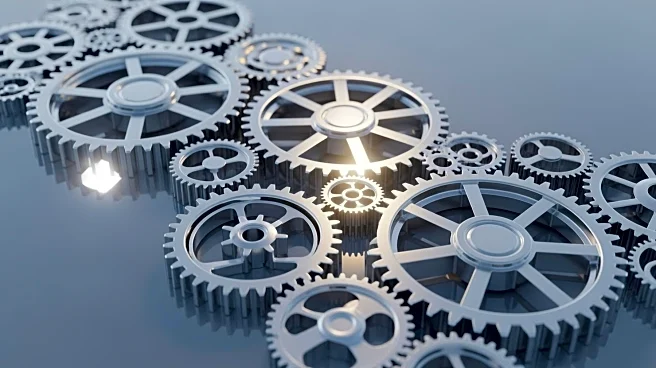What's Happening?
The European Union is actively supporting Moldova's integration efforts through a series of initiatives aimed at enhancing energy security and countering foreign information manipulation. Since December 2021, the EU has provided substantial budget support to
assist vulnerable families and small and medium-sized enterprises (SMEs) in Moldova facing rising energy costs. This support is part of a broader strategy to ensure long-term socio-economic recovery and energy transition. Additionally, the EU has committed EUR 60 million to aid the Transnistrian region, which was left without heating or electricity due to Gazprom's decision to halt energy supplies in winter 2025. The EU and Moldova have agreed on a Comprehensive Strategy for Energy Independence and Resilience, backed by EUR 250 million in 2025, including direct budget support conditional on reforms. This strategy aims to assist Moldovan citizens, social institutions, and businesses in managing steep energy price increases. Furthermore, the EU is enhancing Moldova's security through various initiatives, including the EU Partnership Mission to Moldova and cooperation with European agencies like Frontex and Europol.
Why It's Important?
Moldova's integration into the EU is significant for several reasons. The EU's support in energy security and countering disinformation strengthens Moldova's resilience against external pressures, particularly from Russia. By enhancing energy independence and security, Moldova can reduce its reliance on Russian energy supplies, which have been a point of vulnerability. The EU's initiatives also aim to bolster Moldova's defense capabilities and internal security, contributing to regional stability. Economically, the EU's support for SMEs and trade initiatives, such as the EU-Ukraine Solidarity Lanes, facilitates Moldova's economic development and connectivity. These efforts are crucial for Moldova's socio-economic recovery and integration into the EU market, providing opportunities for growth and development. The EU's commitment to Moldova's integration reflects its strategic interest in stabilizing Eastern Europe and countering Russian influence.
What's Next?
Moldova's path to EU integration involves continued reforms and capacity building. The EU's support package, presented by President von der Leyen in June 2023, outlines measures to address challenges arising from Russia's aggression against Ukraine, including refugee influx, inflation, and energy supply threats. Moldova's participation in EU programs like Horizon Europe and the Connecting Europe Facility will be crucial for its integration process. The EU's ongoing support for Moldova's administrative capacity and advisory services will help navigate the accession process. As Moldova continues to implement reforms, the EU's conditional budget support will play a vital role in ensuring compliance with EU standards. The upcoming integration into the EU Roaming area in January 2026 will further enhance Moldova's connectivity with EU member states, facilitating communication and travel for Moldovan citizens.
Beyond the Headlines
The EU's support for Moldova extends beyond immediate economic and security concerns. By countering disinformation and enhancing strategic communication, the EU is addressing the broader issue of information warfare, which has been a tool of influence in the region. The EU's initiatives also highlight the importance of civil society and independent media in promoting democratic values and transparency. Moldova's integration efforts reflect a broader geopolitical shift towards European alignment, challenging Russian influence in Eastern Europe. The EU's commitment to Moldova's integration underscores the importance of solidarity and cooperation in addressing regional challenges and promoting stability.















